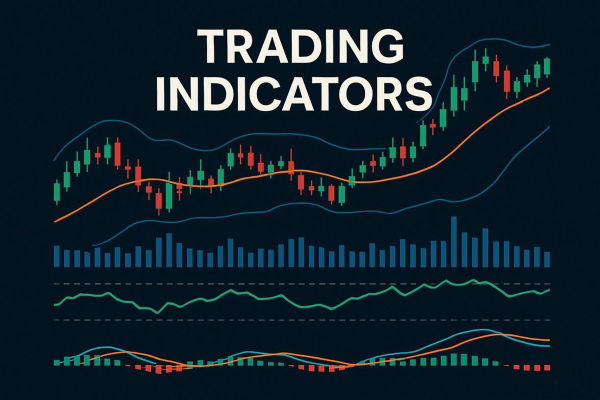The foreign exchange market, or forex, is one of the most dynamic and liquid financial markets. With over $7 trillion traded daily, it offers vast opportunities for traders.
However, the fast-paced nature that makes forex appealing also brings significant risks, especially for beginners. To succeed, it's crucial to approach the market with the right mindset, strategies, and knowledge.
This comprehensive guide presents the top 10 forex trading tips that every beginner should know before placing their first trade. Each tip will help you build a solid foundation, reduce unnecessary losses, and grow as a disciplined trader.
Understanding the Forex Market

Before diving into strategies, it's essential to grasp how the forex market works. Forex trading involves buying one currency while simultaneously selling another, known as a currency pair. Popular pairs include EUR/USD, GBP/USD, and USD/JPY.
Unlike stock markets, the forex market operates 24 hours a day, five days a week, across various global financial centres. This continuous operation allows for price movements to be influenced by many factors, including interest rates, economic data, and geopolitical events.
As a beginner, you must first respect the complexity of this market and the importance of consistent learning.
Top 10 Forex Trading Tips to Know

Tip 1: Start with a Demo Account
One of the most overlooked yet valuable tools for beginners is the demo account. Every reputable broker provides a simulation platform where you can practice trading without risking real money.
It allows you to familiarise yourself with trading platforms
You can test strategies under real market conditions
It helps you understand how price movements affect profits and losses
Before funding a live account, practice on a demo account for several weeks or months. This step builds confidence and helps you avoid costly beginner mistakes.
Tip 2: Learn the Basics of Technical and Fundamental Analysis
Successful forex trading relies heavily on analysis, and there are two primary types: technical and fundamental.
Technical analysis involves reading charts, patterns, and indicators like moving averages, RSI, and support/resistance levels.
Fundamental analysis focuses on macroeconomic data, such as interest rates, inflation reports, GDP, and employment statistics.
Combining both approaches gives you a clearer picture of the market. As a beginner, start with technical analysis as it's easier to grasp and apply in short-term trading. As your understanding grows, incorporate fundamental analysis for a more comprehensive view.
Tip 3: Use a Reliable Trading plan
Jumping into the market without a plan is like sailing without a compass. A trading plan serves as your roadmap and should include:
Your trading goals and time commitment
Risk tolerance and capital allocation
Entry and exit criteria
Preferred trading strategies
A well-structured plan helps eliminate impulsive decisions driven by emotion. It also allows for consistent evaluation and improvement of your trading performance.
Tip 4: Manage Risk Effectively
In forex, it's not just about making profits; it's also about protecting your capital. Risk management is the backbone of long-term success.
Never risk more than 1–2% of your trading capital on a single trade
Use stop-loss orders to close losing trades automatically.
Avoid overleveraging, which can amplify both profits and losses.
Many beginners blow their accounts not because of a lack of knowledge but due to poor risk management. Protecting your capital ensures you stay in the game long enough to develop skills and consistency.
Tip 5: Stick to One or Two Currency Pairs
With over 100 currency pairs available, it's easy to feel overwhelmed. As a beginner, it's best to focus on one or two major pairs, such as EUR/USD or GBP/USD.
These pairs offer high liquidity and lower spreads
They are widely analysed, making information more accessible
You can specialise and understand their behaviour better
Spreading your attention too thin makes it harder to gain mastery. Once you're comfortable, you can explore more exotic or cross-currency pairs.
Tip 6: Keep Emotions in Check
Emotions like fear, greed, and impatience are enemies of successful trading. A single emotional decision can wipe out weeks of consistent progress.
Stick to your trading plan, even after a win or loss
Don't revenge trade or try to make back a loss quickly
Take breaks when you feel frustrated or overly excited
Discipline and emotional control often differentiate between success and failure in the forex market.
Tip 7: Follow Economic News and Events
Being aware of economic events is essential even for technical traders. Major announcements can lead to sudden price spikes or reversals.
Monitor economic calendars for events like interest rate decisions, CPI data, and employment reports
Avoid trading right before or after massive news if you're unsure how to manage volatility
Understand the news's potential impact on your chosen currency pair
News not only affects market direction but also heightens volatility, creating both risks and opportunities.
Tip 8: Use Leverage Wisely
Leverage allows you to control larger positions with a smaller amount of capital. While it can amplify gains, it also increases the risk of losses.
New traders often misuse leverage, leading to margin calls
Use conservative leverage ratios (e.g., 10:1 or lower)
Always calculate your position size based on the leverage used and your risk per trade
Just because your broker offers 100:1 or 500:1 leverage doesn't mean you should use it. Responsible use of leverage is key to account longevity.
Tip 9: Keep a Trading Journal
Professional traders keep detailed trading journals to track their performance, strategies, and emotional state during trades.
Log every trade with entry/exit points, reason for entry, and outcome
Note your emotional condition during the trade (e.g., nervous, confident, rushed)
Regularly review your journal to identify patterns and areas for improvement
This habit improves discipline and turns each trade, win or loss, into a learning opportunity.
Tip 10: Be Patient and Stay Committed to Learning
Forex trading is not a get-rich-quick scheme. It requires patience, discipline, and continuous education.
Spend time learning from courses, books, and reputable websites
Join trading communities to share ideas and stay motivated
Don't be discouraged by initial losses, as they're part of the learning curve
Consistency is more important than intensity. It's better to trade less frequently but follow your strategy than to impulsively trade daily.
Additional Advice for Long-Term Success
Aside from the 10 key tips, here are some additional habits that will support your journey as a forex trader:
Stress and lack of sleep can impair judgment. Ensure you're physically and mentally well before making trading decisions.
Following random signals without understanding the logic behind them can be dangerous. Stick to your research and strategy.
Choose a reputable broker with fast execution, reliable customer service, and user-friendly platforms like MetaTrader 4 or 5. Experiment with trading tools like economic calendars, charting software, and trading simulators.
Even professional traders experience losing streaks. What separates successful traders is how they manage those losses and maintain discipline.
Conclusion
In conclusion, forex trading offers exciting opportunities, but not without challenges. By following the top 10 tips in this article, beginners can avoid common pitfalls and develop habits that lead to long-term success.
Approach forex trading with respect and preparation, and you'll be better positioned to navigate its ups and downs. Remember, the goal isn't to win every trade — it's to trade consistently and wisely over time.
Disclaimer: This material is for general information purposes only and is not intended as (and should not be considered to be) financial, investment or other advice on which reliance should be placed. No opinion given in the material constitutes a recommendation by EBC or the author that any particular investment, security, transaction or investment strategy is suitable for any specific person.



























